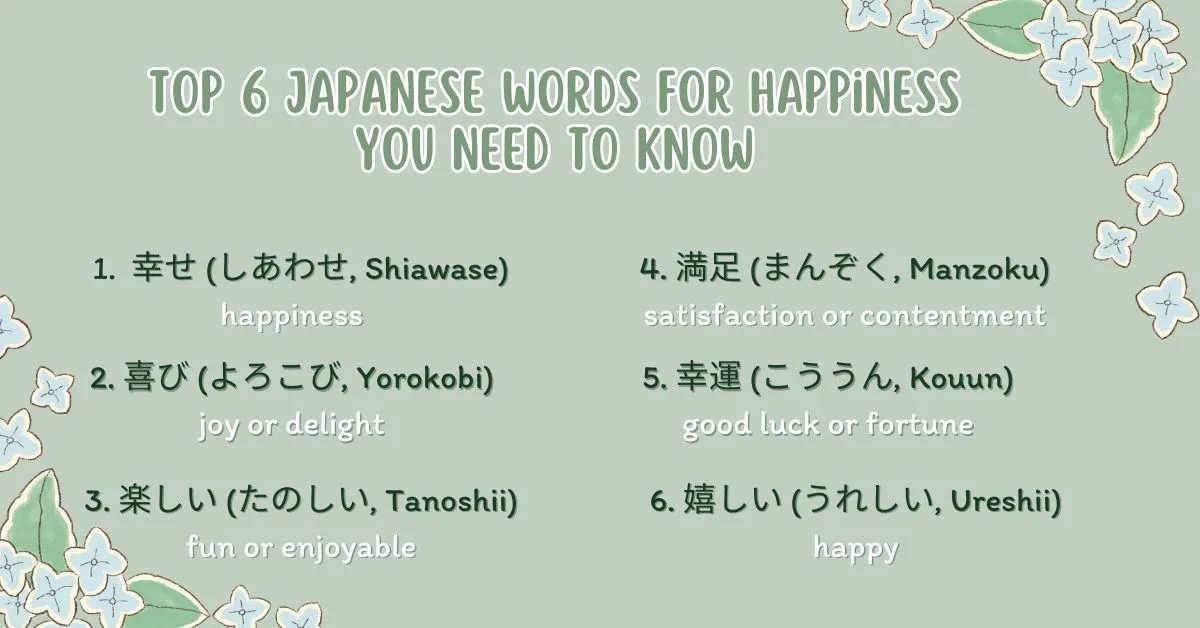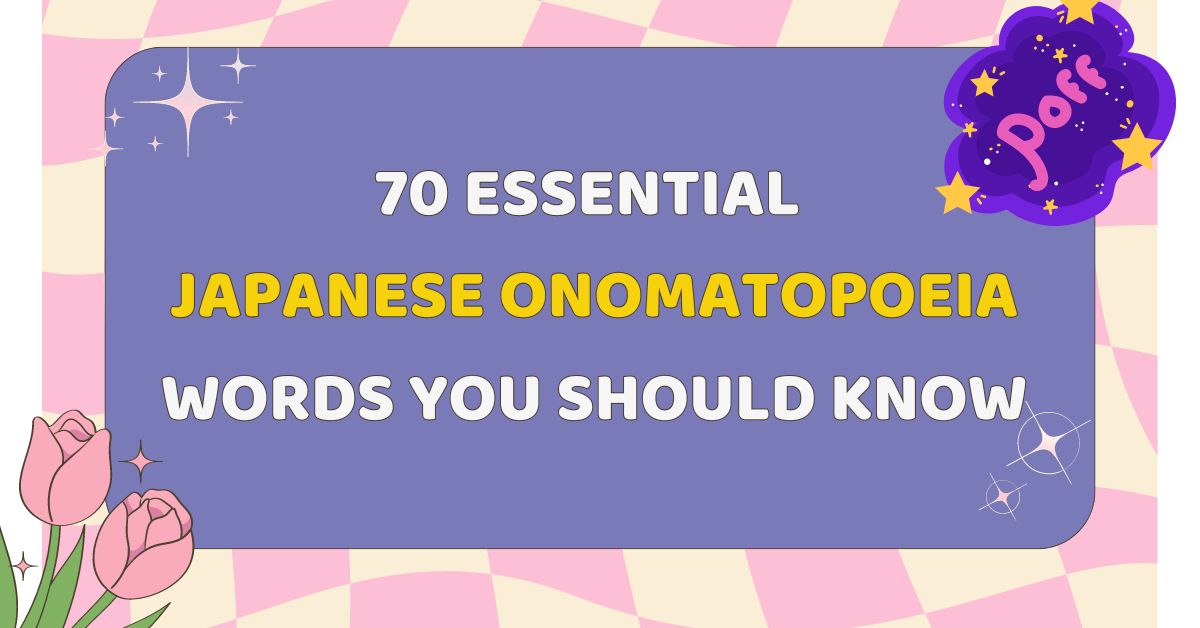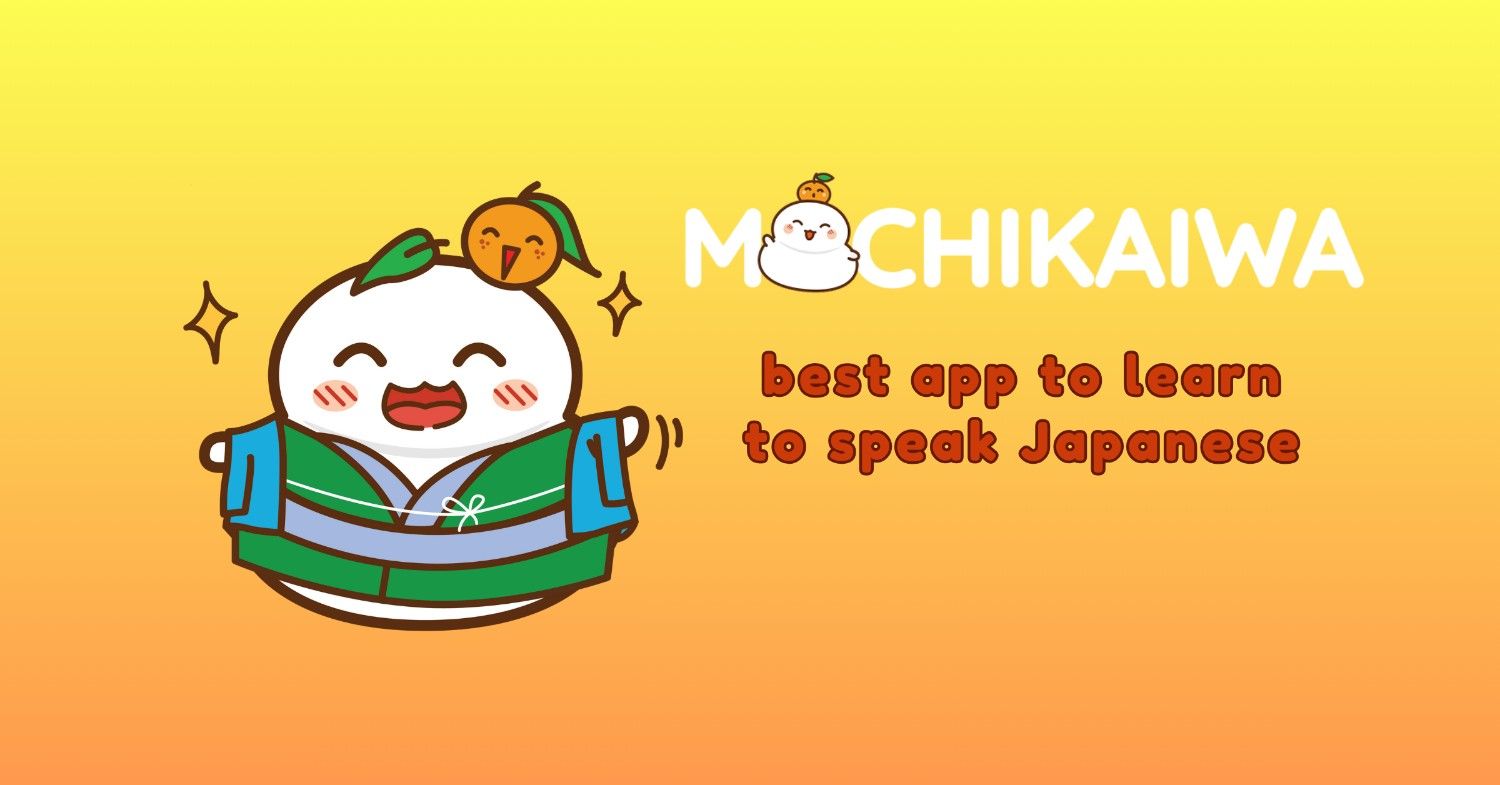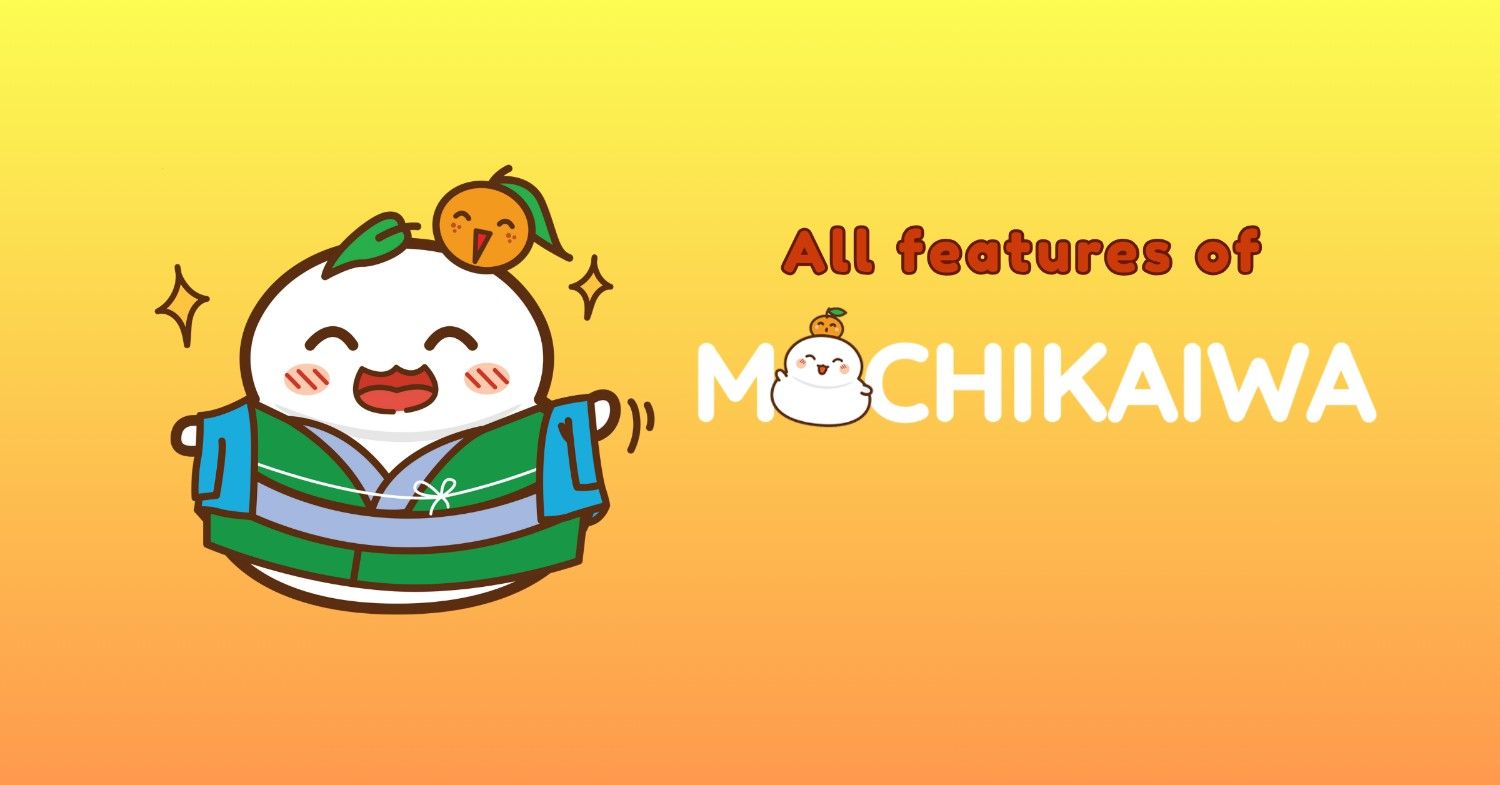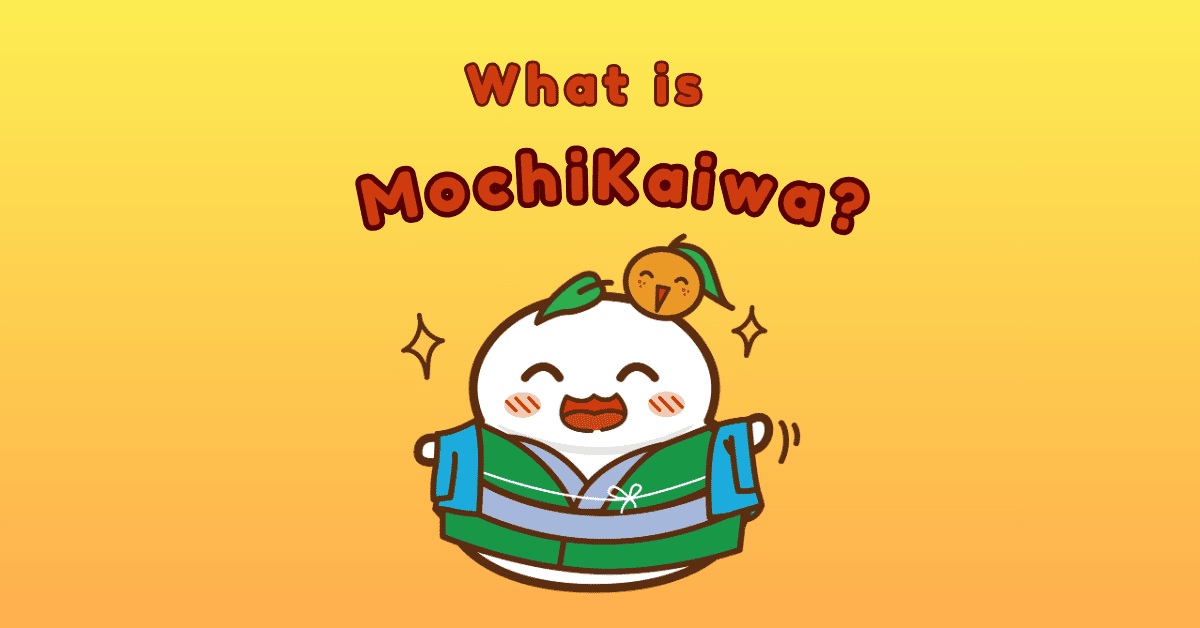Happiness is a universal emotion, but each culture expresses it differently. In Japanese, there are several words that capture various shades of joy and contentment. In this article, we’ll dive into the top 5 Japanese words for happiness, exploring their meanings and how to use them in daily conversation.
- 幸せ (しあわせ, Shiawase)
- 喜び (よろこび, Yorokobi)
- 楽しい (たのしい, Tanoshii)
- 満足 (まんぞく, Manzoku)
- 幸運 (こううん, Kouun)
- 嬉しい (うれしい, Ureshii)
- Mastering Kanji with MochiKanji

1. 幸せ (しあわせ, Shiawase) – Japanese word for happiness
Meaning: Shiawase is the most common Japanese word for happiness. It represents a deep, enduring sense of contentment and joy.
Usage: This word is used to describe a general sense of well-being and is often used in both personal and professional contexts. For example, “私は幸せです” (Watashi wa shiawase desu) means “I am happy.”
2. 喜び (よろこび, Yorokobi)
Meaning: Yorokobi translates to “joy” or “delight.” It signifies a more intense, often momentary happiness than shiawase.
People use this term to express feelings of great pleasure or joy. For instance, “彼の成功を喜びます” (Kare no seikou wo yorokobimasu) means “I am delighted by his success.”
3. 楽しい (たのしい, Tanoshii)
Meaning: Tanoshii means “fun” or “enjoyable.” It refers to the happiness derived from engaging activities or experiences.
Usage: Use tanoshii when talking about something that is entertaining or enjoyable. For example, “このイベントは楽しいです” (Kono ibento wa tanoshii desu) translates to “This event is fun.”
4. 満足 (まんぞく, Manzoku)
Meaning: Manzoku means “satisfaction” or “contentment.”It reflects how one feels satisfied with what they have.
Usage: This word is used to describe a feeling of contentment and fulfillment. For example, “私はこの結果に満足しています” (Watashi wa kono kekka ni manzoku shiteimasu) means “I am satisfied with this result.”
5. 幸運 (こううん, Kouun)
Meaning: Kouun translates to “good luck” or “fortune.” It often evokes a sense of happiness due to favorable circumstances.
Usage: Use kouun when wishing someone good luck or describing a fortunate situation. For example, “幸運を祈ります” (Kouun wo inorimasu) means “I wish you good luck.”
6. 嬉しい (うれしい, Ureshii)
Meaning: Ureshii means “happy” or “pleased.” People often use it to express a personal feeling of happiness or pleasure in response to something.
Usage: Use ureshii when you feel happy or delighted about a specific event or situation. For example, “あなたに会えて嬉しいです” (Anata ni aete ureshii desu) means “I am happy to see you.”
Mastering Japanese word for happiness with MochiKanji
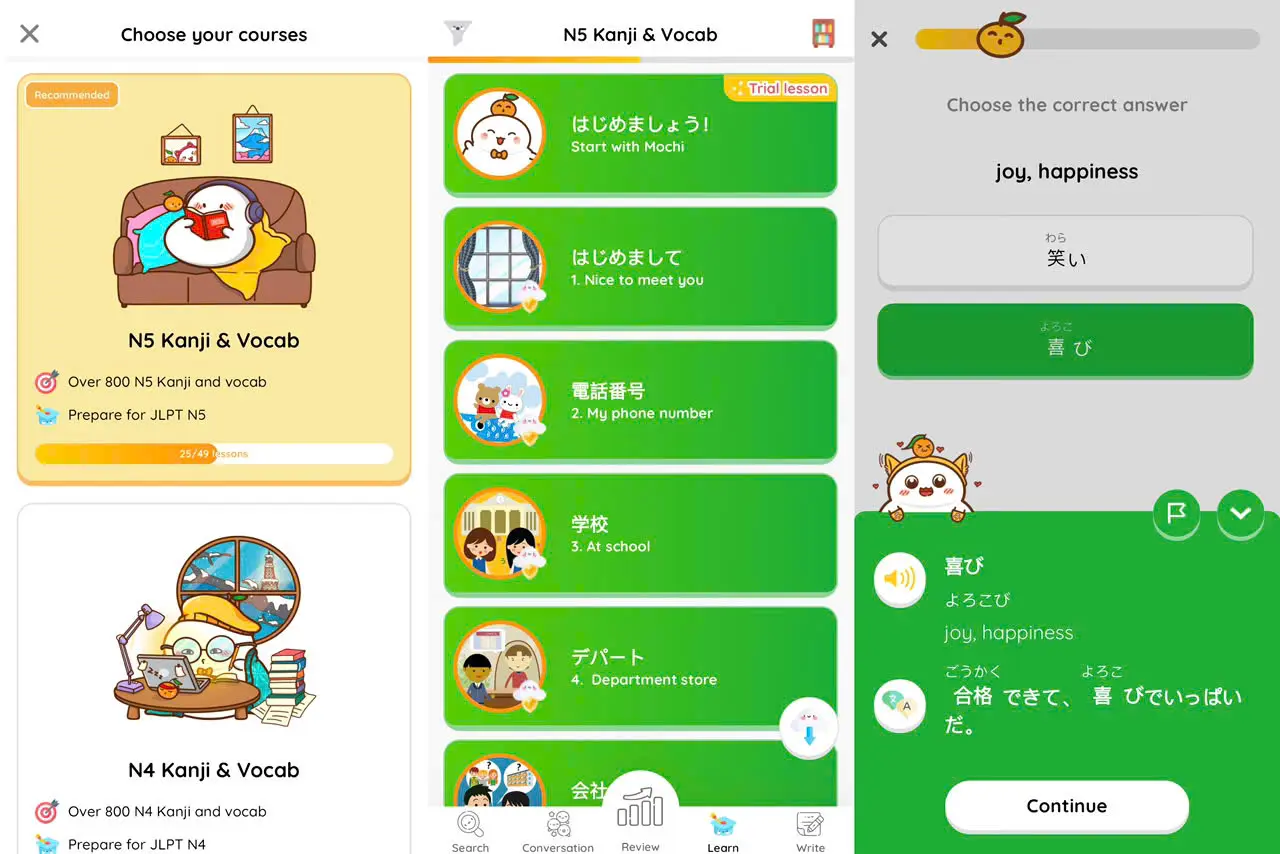
Learning and remembering kanji for words like shiawase (幸せ) or yorokobi (喜び) can be challenging, but MochiKanji makes the process smoother. The app’s Golden time feature notifies you when it’s the optimal moment to review kanji, ensuring you retain them effectively. Paired with its customizable flashcard system, you can practice kanji at your own pace. Additionally, J-Direction helps guide your learning with a Japanese-first approach, helping you immerse in the language naturally as you expand your vocabulary.
Understanding these Japanese words for happiness will help you express different shades of joy and contentment in various situations. Whether you are talking about deep-seated happiness, fleeting joy, or satisfaction, these words will enhance your Japanese vocabulary and communication skills.

